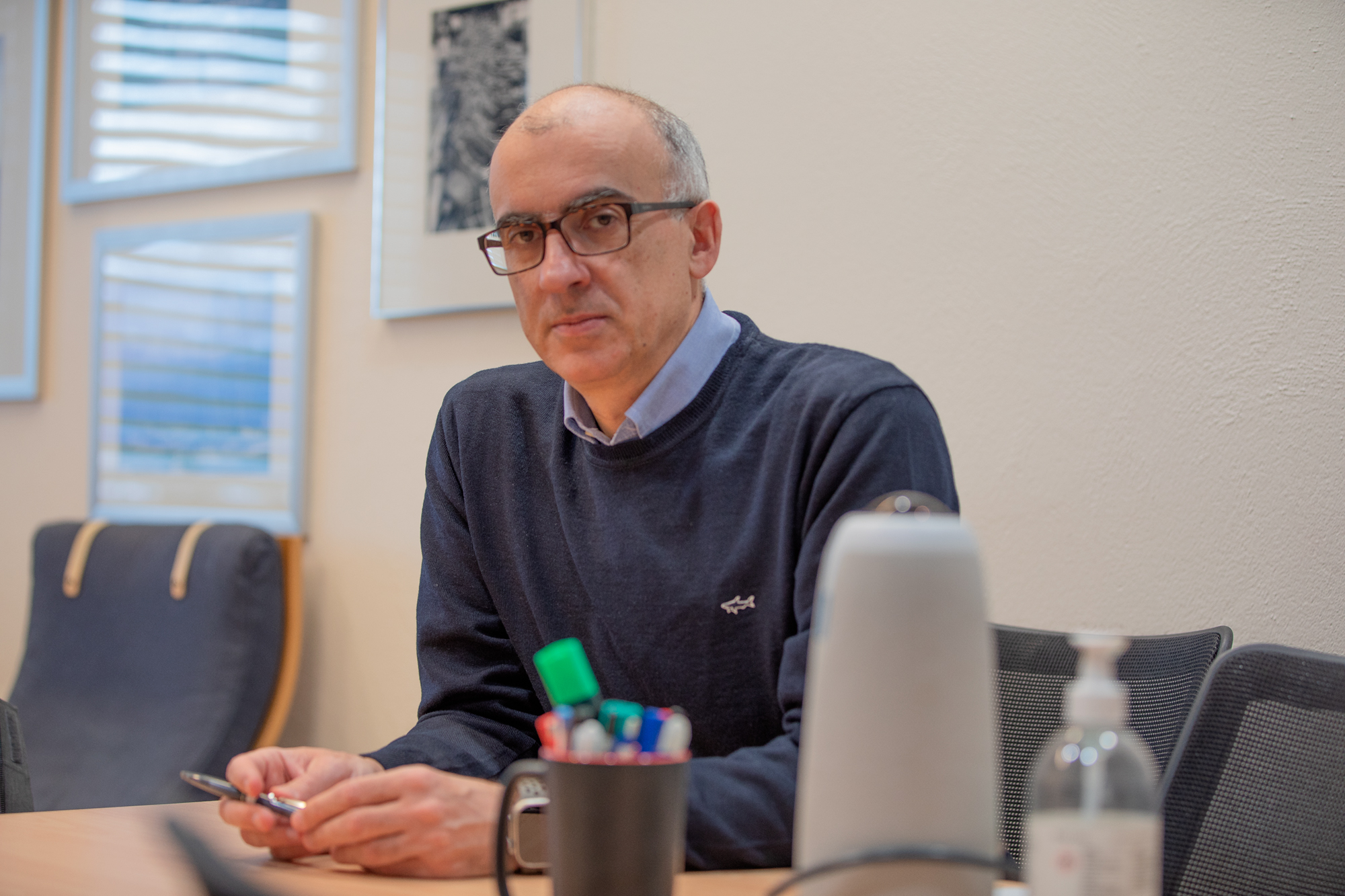The cloud is ever-growing and, as a consequence, data centers are multiplying in size and number. The situation is difficult to manage. To meet demand, outdated and inefficient technology is often being used to provide quick solutions. Cooling systems are frequently unwieldy and energy inefficient, with little or no use made of the wasted heat. The carbon footprint of data centers is soaring. The situation is becoming ungovernable.
 Within the context of the initiative funding “Solutions for Sustainability”, the EPFL has granted a project called Heating Bits, in an attempt to impose some order on this unruly situation. A multi-talented team of professors are setting their labs to work, defining and implementing new technologies and optimal control strategies to data centers.
Within the context of the initiative funding “Solutions for Sustainability”, the EPFL has granted a project called Heating Bits, in an attempt to impose some order on this unruly situation. A multi-talented team of professors are setting their labs to work, defining and implementing new technologies and optimal control strategies to data centers.
"The Heating Bits project develops multiple technologies and methodologies to minimize the carbon footprint of data centers," explains Prof. Mario Paolone. "To do this we are managing different flows: information flows, electricity flows - sources and use - and thermal flows. Heat will be extracted from the CPUs of the center for external use: supplying local district heating, as well as for the generation of electricity by means of an Organic Rankine Cycle."
Heating Bits gathers together the expertise of a range of laboratories. Prof. Elison Matioli (PowerLab) is retrofitting standard server chipsets with on-chip liquid cooling. Prof. Jörg Schiffmann (LAMD) is developing optimal Organic Rankine Cycles to generate electricity for the recuperated heat. Prof. Drazen Dujic (PEL), is building a microgrid to distribute flows of electricity between energy storage systems, photovoltaic generation and power supplies. Prof. David Atienza (ESL/EcoCloud) is building the intelligent systems that will rank sources of energy by ecological quality and availability, and predict optimal strategies on an intraday basis. As for Prof. Paolone himself, he is building the multi-time-horizon-control that will coordinate all of these systems, so that they play together in time to minimise the data center carbon footprint.
As a six-year project, Heating Bits will be the sole focus of a number of PhD students during their studies at EPFL. "Speaking for my lab, some people are working only on Heating Bits from Day 1. Many will be reoriented to Heating Bits, but all partners are recruiting for this project."
Organic Rankine Cycle
recuperates the thermal energy of hot fluids by converting it into electrical or mechanical energy for use in other processes
Already deployed are a 60kWh battery, integrated into a microgrid, and a dedicated space in the new EPFL data center, the CCT building (Centrale de Chauffe par Thermopompe), with its large array of solar panels. A demonstrator is being developed with a 50kW power supply: conversion devices will be sized accordingly.
The importance of laboratories working together is paramount to a project with such a wide range of challenges. Of the labs listed above, all who were here at the time were involved in Nano-Tera. Two are involved in the UrbanTwin initiative, which upscales similar technology for an entire city, and three are members of the EPFL EcoCloud Center.
"In these collaborative projects you are exposed to different disciplines and the know-how of people who are in varied cultural and technical backgrounds," explains Prof. Paolone, "this is extremely beneficial when developing solutions – and these solutions are often the most successful. Many of the ideas we pioneered within the Nano-Tera project have been deployed throughout the EPFL campus as industry grade products for the operation of our internal electrical grid. Much of this infrastructure will be used for Heating Bits."
There was also a spin-off. To quote the website of Zaphiro Technologies SA: "Based on the PhD-thesis of the three founders, Zaphiro is still keeping innovation at the core of the company strategy, continuously bringing superior solutions to the energy market." Prof. Paolone confirms this: "Zaphiro is commercializing many of the solutions that came out of S3Grid, our Nano-Tera project."
As for Heating Bits, the possibilities for spin-offs abound: "We have been contacted by many leading industry players," explains Paolone. "One of them asked to see me right away - one week after the project’s kick-off meeting, their representatives were sitting in my office." It sounds dramatic, but this is a problem that requires urgent action.
"Data centers nowadays use 2-3% of global energy. It is projected to go to 10% in 2030. The ease with which we generate all this information has exploded," explains Paolone, who is doing his best to get some control over the situation.
Control is key here. Orchestras depend on order, if they are to play with the right tempo, the correct volume and the smooth deployment of the sections of an orchestra. In this case Prof. Paolone is like an opera conductor, controlling the flows of electricity, heat and information, not only with several labs working in conjunction, but also in synchronizing the educational, research and industrial outputs of Heating Bits. For some people, luckily, establishing control comes naturally.
Official website: https://heatingbits.epfl.ch
Interview: John Maxwell
Photo and video: Alex Widerski